Weekly Summary:
The Nigerien military reportedly killed the leader of JAS, more commonly known as Boko Haram, on 15 August. The extremist group has refuted these claims, while many others have expressed doubt over the leader’s purported death.
The Malian government finally broke its silence following reports of a wave of arrests targeting members of the military. Details have nonetheless remained scant, suggesting the detentions came as a result of rising internal tensions linked the the country’s worsening insecurity.
Despite international efforts and reported breakthroughs, intense violence has continued in the eastern DRC. M23 recently announced it would resume talks with the Congolese government, after withdrawing last week due to alleged ceasefire violations.
Supported by US airpower, Puntland embarked on a fresh push to eradicate the IS from its territory. Victories have come at a cost and IS has shown it is yet to be defeated.
In Sudan, the RSF has struggled on the battlefield and continues to subject civilians to indiscriminate violence. The SAF reshuffled its leadership, reportedly due to pressure from international stakeholders.
Uncertainty Surrounds Death of JAS Leader Bakura
Jama’tu Ahlis Sunna Lidda’awati wal-Jihad (JAS), commonly known as Boko Haram, was once among the world’s most notorious extremist groups. After an internal split in 2016, which sparked internecine conflict and ultimately led to the death of its egomaniacal leader Abubakar Shekau in 2021, JAS has faced mixed fortunes.
But for communities in the Lake Chad and the Mandera mountains, where the group maintains strong footholds, JAS remains a pernicious force. Lacking the offensive capabilities to attack local militaries head-on like its counterpart Islamic State West Africa Province (ISWAP), which benefits from support from Islamic State central, terrorising civilians is JAS’ primary focus.
Since 2022, JAS has been led by Ibrahim Bakura, a seasoned militant whom Shekau had once placed in control over the Lake Chad, where he has been linked to massacres, suicide bombings, kidnappings, and other egregious crimes. On 15 August, Bakura was reportedly killed on an island in Lake Chad, according to reports that emerged on 21 August. It is claimed that the Nigerien military killed Bakura, along with other high-ranking members and fighters, in a series of air strikes following weeks of surveillance.
However, despite the official reports, there have been significant doubts over Bakura’s alleged death. The terrorist leader has been reported dead on three occasions in the past and authorities in the region lack the ability to verify the outcome of such remote strikes, journalist Wassim Nasr notes. JAS has released an audio statement denying the claims, while researchers also report that locals have sighted Bakura since his alleged death.
Whether Bakura is dead or not remains to be seen, yet the contentious debate surrounding leadership decapitation as a strategy for countering terrorist groups suggests that even if he is, the further demise of JAS is by no means a foregone conclusion.
Bakura is/was popular amongst rank-and-file militants for a range of reasons, including the autonomy he granted his fighters, suggesting that they have the capacity to adapt to such a change. Reports that a faction of Lakurawa, a shadowy extremist group based in northwestern Nigeria, recently pledged allegiance to Bakura-led JAS further underscore that the group maintains a broad reach and appeal.
Mali’s Mysterious Coup Plot
The Malian government, led by President Assimi Goita, appears to have emerged from one of the country’s most significant periods of political turbulence in recent memory relatively unscathed. Early in the month, rumours began to spread online of a wave of mass arrests targeting members of the military. For some time, the regime stayed conspicuously quiet before eventually breaking its silence on 14 August. It confirmed reports that Gen. Abass Dembélé and Gen. Néma Sagara Dembélé - two influential and well-respected officers - were arrested along with nine others linked to the "destabilisation effort”.
Citing sources within the Malian military, Jeune Afrique has reported that the recent arrests stemmed from internal tensions rather than the uncovering of a coup plot. It also stated that while a detained French national has been confirmed as an intelligence agent, claims of his involvement in a coup plot are unfounded. According to the media outlet, the man was arrested to lend credibility to the junta’s narrative and rally popular support.
The junta’s allegations of French involvement have been provided largely without evidence. Yet for those in Mali and the wider region acutely aware of France’s historic meddling in the affairs of African countries, they are not difficult to believe. For decades after independence, via its Françafrique policy, Paris indirectly shaped the trajectory of its former colonies and, on occasion, directly facilitated regime changes. Even if there is no proof of such operations in recent decades, France’s rhetoric and behaviour have nonetheless sustained the perception of a paternalistic relationship.
The overall lack of details regarding this reported plot suggests it was likely fabricated to obfuscate internal discontent over the junta’s handling of the country’s worsening insecurity and (lack of) political transition. A complex and multi-pronged assault by Jama’at Nusrat al-Islam wal-Muslimin (JNIM) in the Segou region, in which it reportedly captured the town of Farabougou and other nearby localities on 19 August, will have done little to reduce pressure on the ruling regime. It remains unclear whether the government has fully regained control of the area following this major militant operation, though such ambiguities are highly indicative of its current battlefield fortunes, which will undoubtedly shape its long term future.
False Dawns in the DRC as Fighting Continues
A flurry of peace deals and pledges announced earlier this summer were heralded by some as a turning point in the conflict between the Congolese government and the Rwanda-backed M23 rebel group. This hope was not entirely unfounded: a peace deal between Kinshasa and Kigali was unprecedented, even if it was forged in part by the financial incentives offered by its US and Qatari brokers, while a ceasefire agreement between the DRC and M23 last month also gave reason for optimism.
Yet fighting persists on the ground, carrying deadly consequences for those caught in the crossfire. Absent a peace deal between the Congolese government and M23 - and given the conflict’s historical, ethnic, and political complexities - this reality comes as little surprise to most. US President Donald Trump may be among the minority, however, claiming on 25 August that “For 35 years, it was a vicious war. Nine million people were killed with machetes. I stopped it. ... I got it stopped and saved lots of lives.”
President Trump’s recent remarks, characteristically self-congratulatory but factually inaccurate, are at best misleading and at worst delusional. But the question remains as whether he may one day be vindicated. History suggests otherwise, and the latest turbulence between the DRC and M23 offers little reason for confidence. On 18 August, M23 withdrew from talks citing ceasefire violations. Reports suggest that the ceasefire agreement had been poorly adhered to from the outset, yet these accusations ring hollow coming from a group recently accused of brutally killing hundreds of civilians in July.
Despite the enduring violence, it was reported on 26 August that M23 had retaken its seat at the negotiating table. According to Al Jazeera, discussions are currently centered around “plans to create a mechanism for monitoring the truce, as well as an exchange of prisoners and detainees.” However, with largely pro-government Wazalendo militia groups playing a key role in the conflict, their notable absence from peace talks means that even if M23 and the Congolese government were to reach a breakthrough, lasting peace would remain elusive, and the conflict would likely enter a new, unpredictable phase.
Puntland Furthers Pressure on IS with US Support
On numerous occasions in recent months, authorities in Puntland have claimed to be in the final stages of their lengthy offensive against the Islamic State Somalia (IS-S). Yet, each time the end is reportedly within reach, fighting has continued. That is not to downplay the difficulty facing local forces, who have been tasked with pushing out a determined force holed up in a favourable physical terrain. Nonetheless, with periodic support from the US military, significant progress has been made since Puntland’s offensive began in January.
Over the past week, Puntland forces have captured additional territory, at times at a heavy price. The latest push has been supported by frequent US airstrikes, some of the most intense to date, which have reportedly primarily targeted high-ranking leaders in the Golis mountains. In recent days, offensive action has been been centered on control over springs and wells, which serve as a vital source of water for IS-S militants, in Balade Valley.
26 August could yet be seen as a pivotal moment in the current period of contestation, despite far less fighting. Indeed, the US Africa Command announced the conclusion of its two week air campaign, while Puntland gave IS-S fighters a 72-hour ultimatum, which, reflective of the branch’s highly transnational make-up, was issued in several languages. According to local reports, militants and their families are trapped in caves in Balade Valley, with little option other than to surrender or die.
IS-S has shown resilience, but its capacity to fight is finite and the recent intense pressure it has faced has likely pushed it closer to its limits. A decisive Puntland victory seems unlikely, given that the branch will almost certainly seek to maintain even the smallest of presence in order to launch a potential revival in the future.
The scale of US support provided to Puntland highlights the branch’s significance within the extremist organisation more broadly, yet it remains unclear how this offensive will impact IS as a whole. While a degraded IS-S may have consequences over the short-to-medium term, IS central has proven highly adaptable and is unlikely to be significantly impacted in the long term unless multiple branches in Africa and beyond come under sustained pressure - a currently improbable scenario.
RSF Struggles as SAF Reshuffles Leadership
A number of countries across Africa find themselves embroiled in protracted, deadly, and seemingly intractable conflicts. Sudan is arguably among the prime examples of this notion, with violence between the Sudanese Armed Forces (SAF) and the paramilitary group Rapid Support Forces (RSF) continuing at a high intensity. For months now, western Sudan has been a key battleground between the two belligerents. On 23 August, the RSF reportedly suffered a major loss in this sector against SAF-allied militiamen, with significant human and material casualties recorded in a battle at Umm Sumeima.
Elsewhere in the west, the besieged city of el-Fasher in Darfur, recently described as “the Stalingrad that no one has heard of”, remains the scene of high-intensity violence as the RSF endures in its efforts to seize control from the SAF. These attempts have so far been in vain, with the SAF’s staunch defences holding firm despite the RSF reportedly firing between 700 and 1000 aerial projectiles at the city on a daily basis over the past ten days. Lately, heavy clashes have taken place in and around the Abu Shouk camp, with many of the 190,000 people housed there on the receiving end of vicious violence.
Away from the battlefield, General Abdel Fattah al Burhan, leader of the SAF, recently announced a major reshuffle of his military leadership. The reorganisation was announced just days after Burhan allegedly assumed direct command over “all the other armed groups fighting alongside the army - including former Darfur rebels, Islamist brigades, [and] civilians who joined the war effort and tribal militias”. Reports suggest the reshuffle followed direction from Egypt, a key SAF backer, under pressure from the US, who, like many other international stakeholders, has expressed unease about the influence of Islamists within the SAF.


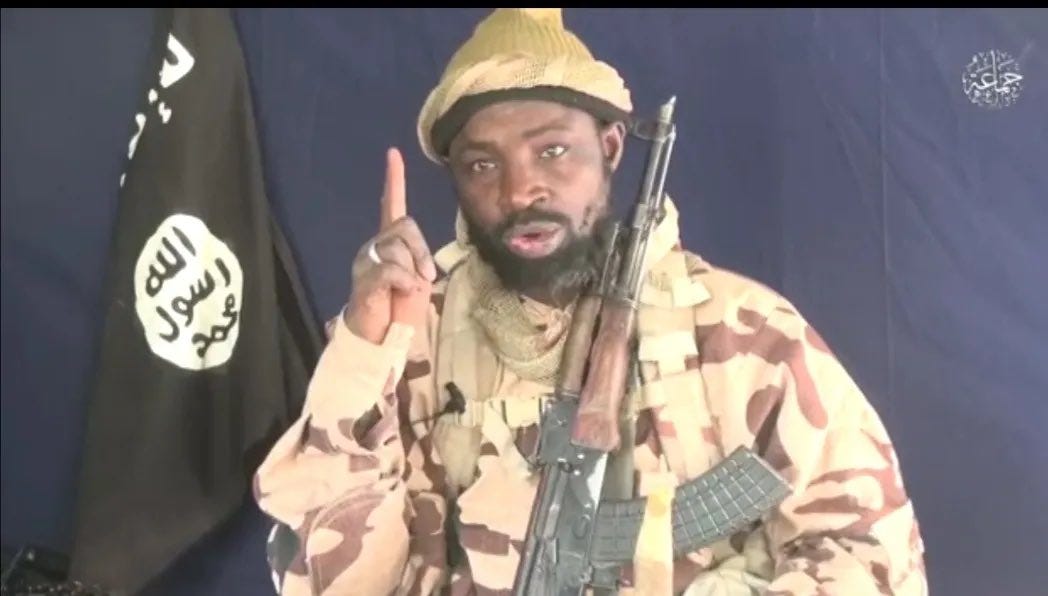
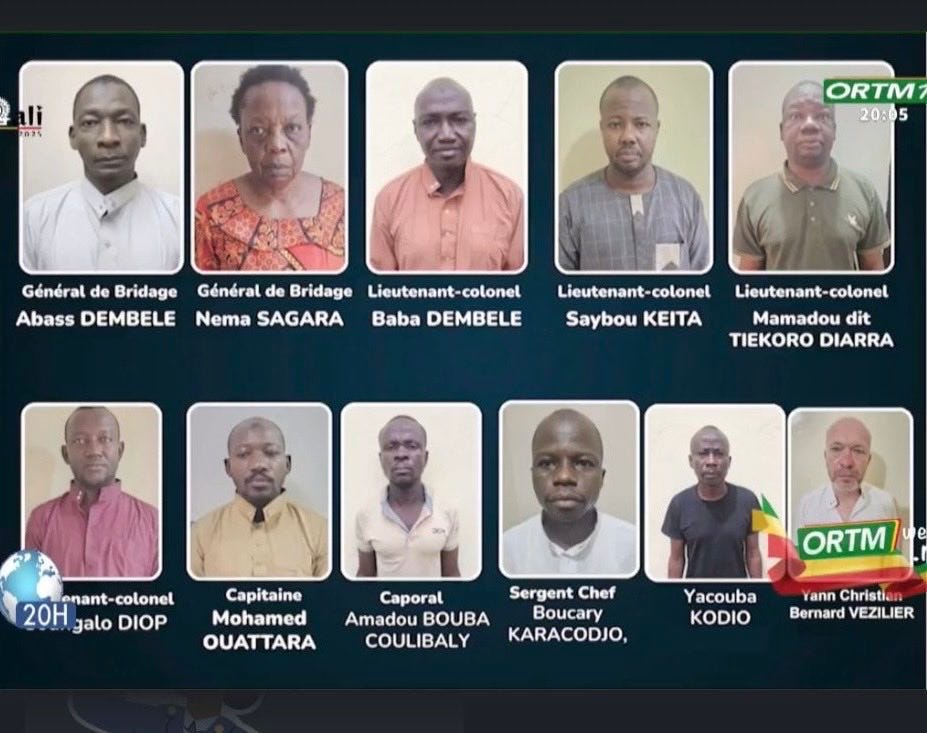
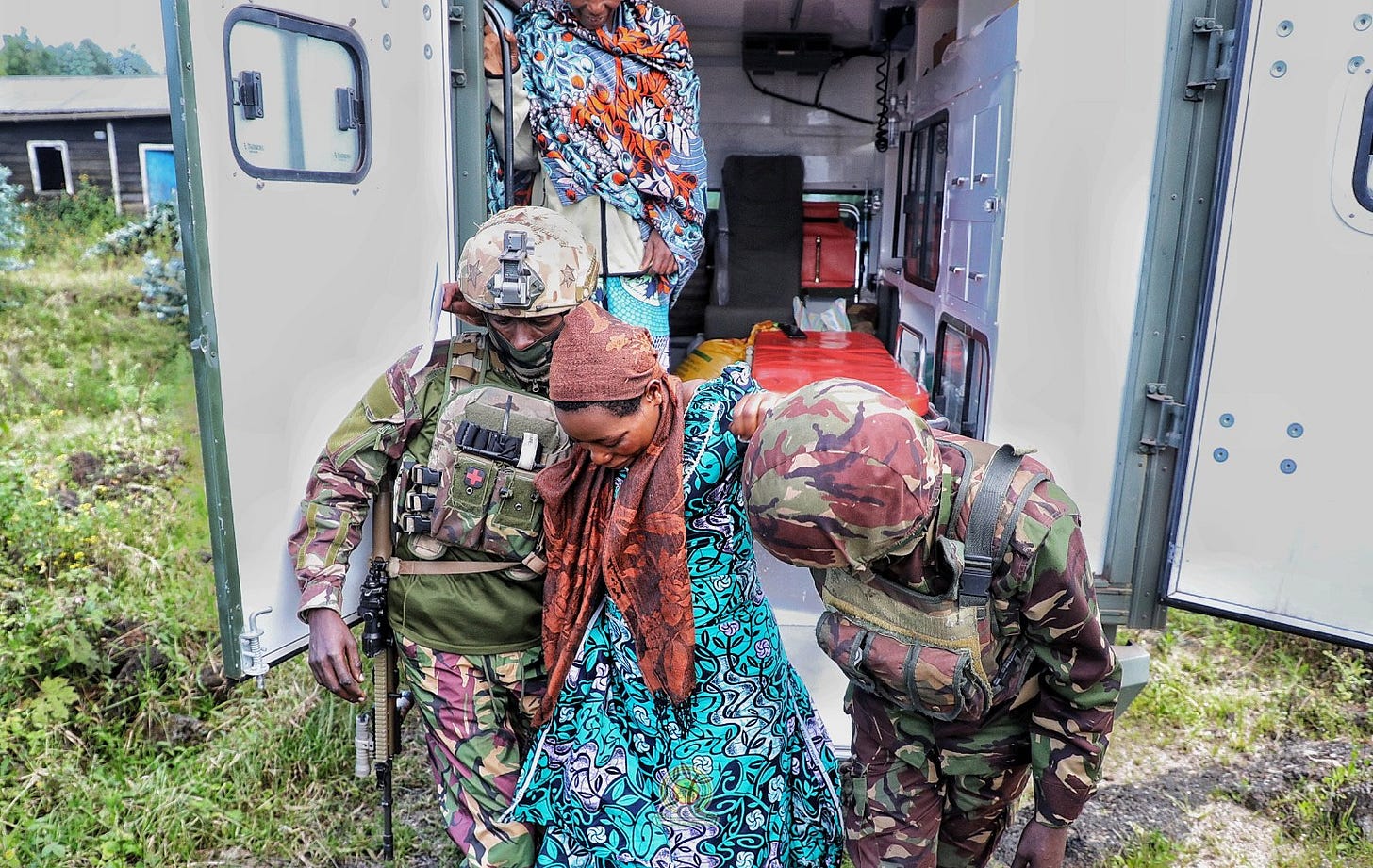
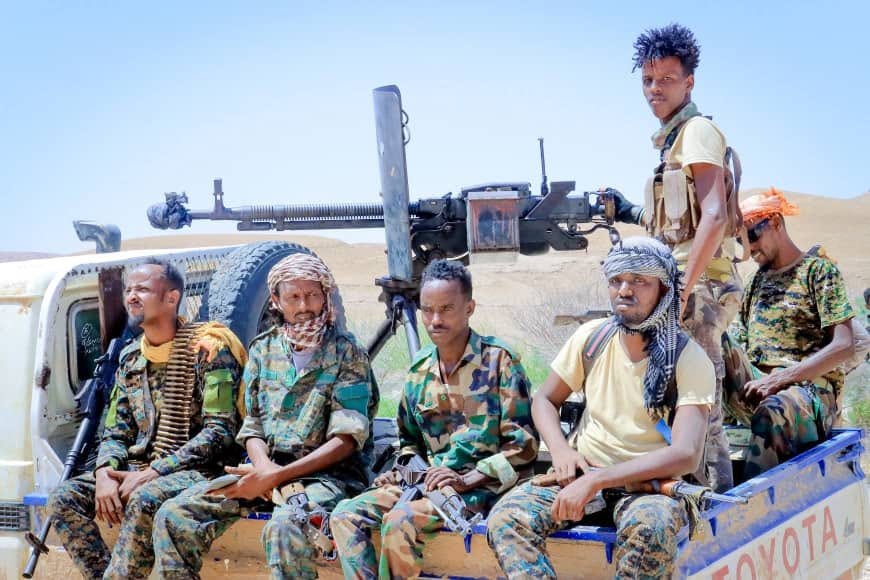
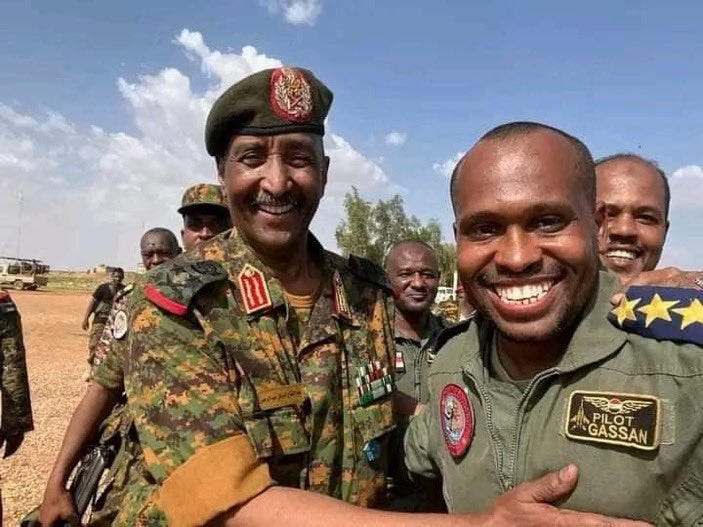
Great read! Let’s hold off until we see whether any succession talk comes out of Boko Haram. That would give the claims a lot more credibility. If he turns out to be alive, though, it could hand the group a propaganda win and actually boost recruitment.
Another well written piece!